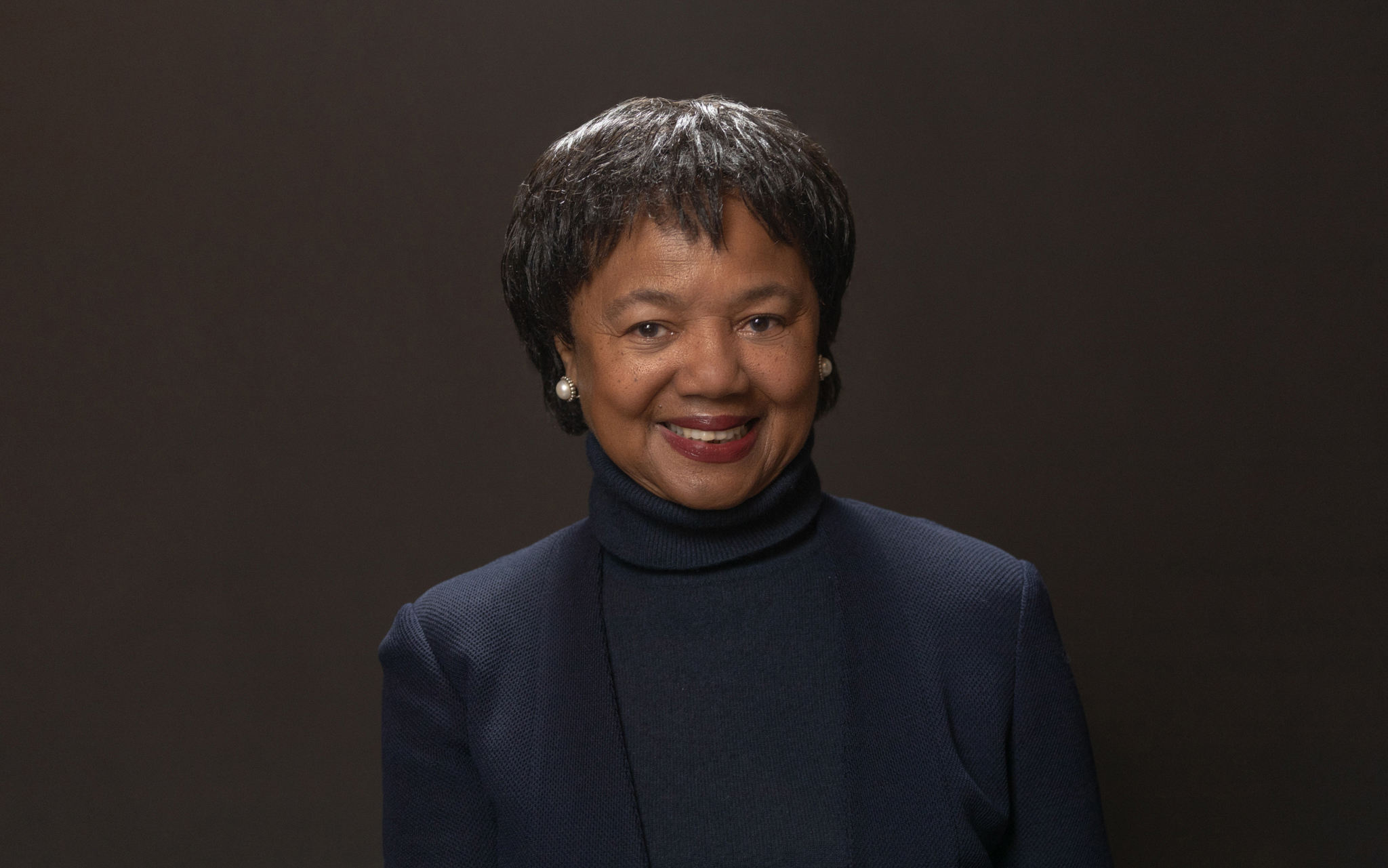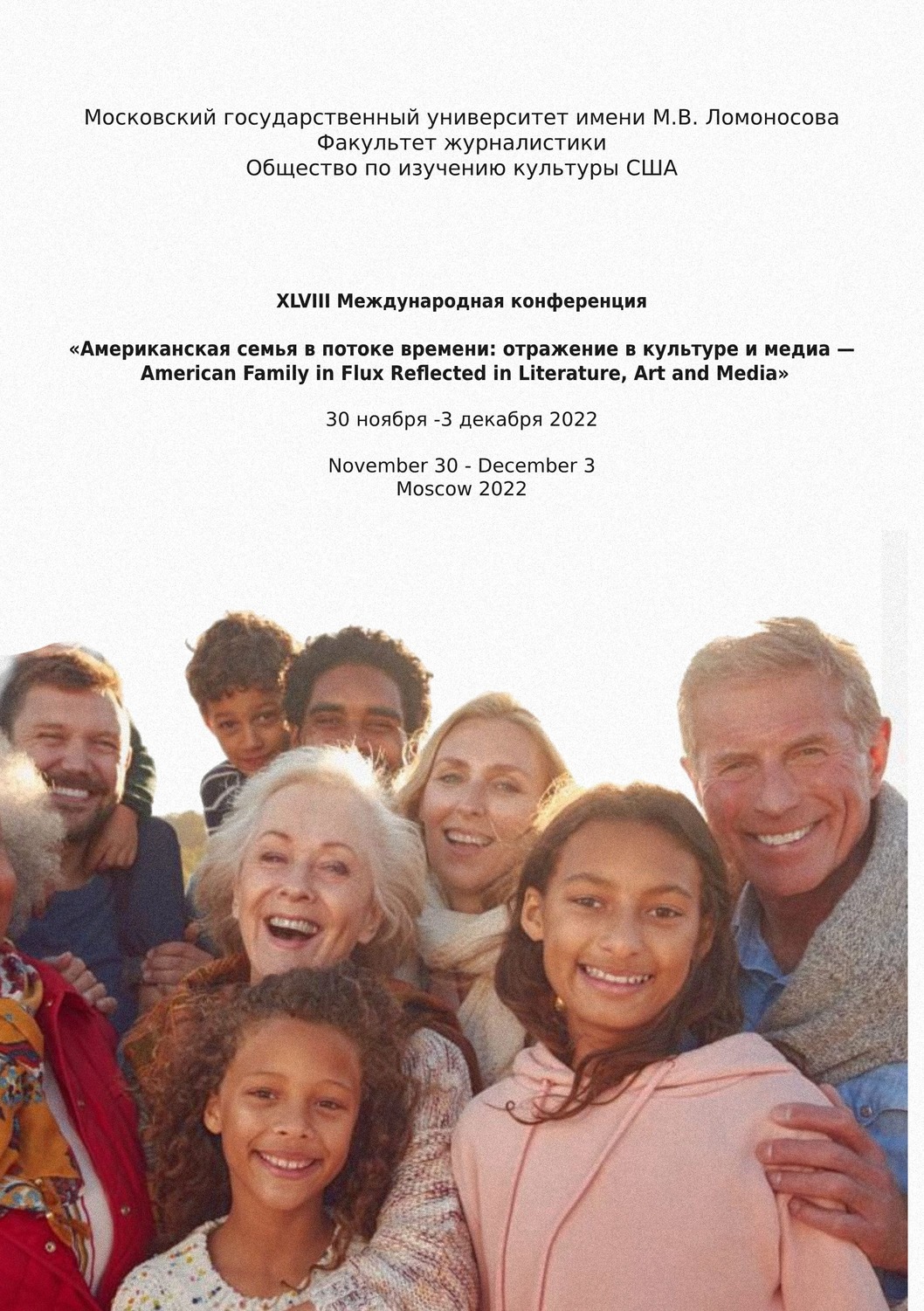November 30, 7.00 PM room 103
Session will be in English
- Dr.Larisa Mikhaylova
Journalism Department, Lomonosov Moscow State University
RSACS Academic Secretary
Introduction of the Plenary Speakers and the schedule of the conference
- Dr. Carolyn Calloway-Thomas
Past President, World Communication Association
Professor and Director of Graduate Studies
Department of African American and African Diaspora Studies
Indiana University, Bloomington, U.S. A.

Carolyn Calloway-Thomas at IU Bloomington on Tuesday, Feb. 15, 2022. (Photo by Chris Meyer/Indiana University)
Dr. Carolyn Calloway-Thomas is past president of the World Communication Association. In November 2022, she was invited to serve as an intercultural communication competence expert advisor on the World Council on Intercultural and Global Competence. She received her doctoral degree in communication from Indiana University Bloomington, where she is currently professor and director of Graduate studies in the Department of African American and African Diaspora Studies. Her areas of specialization are intercultural communication, empathy and conflict, transforming divided communities, pedagogy of empathy, communication in black America, and civic engagement. She is author of Empathy in the Global World: An Intercultural Perspective, coauthor of Intercultural Communication Roots and Routes and Intercultural Communication: A Text with Readings, and coeditor of Dr. Martin Luther King Jr. and the Sermonic Power of Public Discourse. Her coauthored book, Intercultural Communication between Chinese and North Americans, is forthcoming in 2023. She is also a member of the Central States Communication Association’s Hall of Fame, and has given hundreds of talks on intercultural communication, empathy, diversity, and intercultural competence both nationally and internationally. Her many awards include a Ford Postdoctoral Fellowship, a Fulbright Fellowship, a Carnegie Scholarship, the W. George Pinnell Award for Outstanding Service, the National Council for Black Studies’ Paul Robeson and Zora Neale Hurston Award for Outstanding Leadership and promotion of African Humanities, and the National Communication Association’s Samuel L. Becker Distinguished Service Award.
Portrayals of the American Family in Print Media: ‘Cells of Consciousness and Quilts of Reality’
“Each member of the family in his own cell of consciousness, each making his own patchwork quilt of reality—collecting fragments of experience, here, pieces of information there.”
—Toni Morrison
Once upon a time, over fifty years ago, it was easy for Americans to define what is a family. Today, however, technology, educational attainment, and shifting values and attitudes have profoundly changed the definition (s) of family, leading to more diverse views of what constitutes an American family. But what are some social and cultural trends that intersect to promote changes in family life? Why do such trends matter? And what are the implications of such trendlines for the larger society and our place in it? Although the reasons are complex and various, part of the answer lies in the way newspapers and magazines frame the nature, structure, and idea of the American family.
This presentation examines the way select newspapers and magazines frame trends and patterns of American family life through the specific lens of a thematic cluster analysis. An analysis of articles and editorials have much to recommend, because they can reveal perceptions of what diverse families share in common, as well as suggest what is strategically significant in holding American society together and sustaining citizenship and collective familial bonds. Newspaper articles and editorials in the New York Times, The Wall Street Journal, the Washington Post, and the New York Post form the basis of the analysis, augmented by literature from the Pew Research Center. My major emphasis is on the words authors and editors use to talk about the American family and how the words work. The end goal is to see how editors and writers view the American family in the twenty-first century.
- Dr. Maria Zolotukhina
Assistant Professor
Sociocultural Practices Chair,Department of Culture Studies
Russian State University for the Humanities, Moscow, Russia
Maria V. Zolotukhina is an Assistant Professor at the Russian State University of Humanities and holds a PhD in history. She has been teaching at several Russian universities. Her courses include Ethnosociology, Sociology of Family, Sociology of Culture, Intercultural communication, History and Culture of Everyday Life (in English). Her academic interests include: history and social anthropology of childhood and family, ethnic identity, history and social anthropology of childhood and family in the US and Russia, gender issues, memorial culture and collective memory, and oral history.
Золотухина _список публикаций_2022
The New American Dream: changing values of parenting and parenthood
To launch a child into adulthood right at the time of entering college (and via doing that) has been one of the fundamental values of American middle class – vague as this category may appear. It served as the criteria for successful parental efforts of upbringing and its tangible result – an independent person, already focused on his or her own future success, separated from the family of origin. What seems to have changed quite significantly over the past decades are both the time frame of growing up and the criteria for achieving adulthood thus calling into question the very philosophy of life for Americans. The good old formula – “leave your home, become independent, live the American dream” – that served so well as a universal cultural imperative, while remaining recognizable, has lost its immutable character. Therefore parenthood and parenting as a project changed their rather substantiative qualities: in what constitutes being child-centered now, how is independence and autonomy taught and – most of all – what is the new understanding of affection and its manifestations. Such profound changes can not but influence the core elements of American childhood – an ideal space for a child at home, means of learning financial independence and charity, the notion of privacy and self-esteem and achievement. New types of parenting having become media mems (helicopter parenting. Tiger moms, bulldozer parenting etc ) create both moral panics (boomerang children never leaving home once they are back) and bring about condescending smiles. Emerging adultdood – a term coined by Jeffrey Arnett as a phenomenon even made insurance companies extend their policies up to age 24-25. Covid pandemic of 2020 and 2021 seems only to have reinforced the already existing new patterns without fully doing away with the old ones creating a new version of the American dream.
The presentation is based on long time included observation, media sources and interviews.




